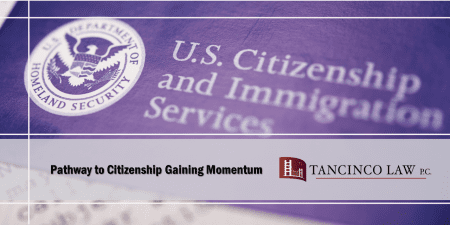Congress Passes Budget Resolution Paving Way to Legalizing Certain Immigrants
On August 24, 2021 the U.S. House of Representatives passed the Budget Resolution on a 220-212 vote allowing a budget reconciliation bill to move forward in Congress. The budget resolution includes over $100 billion to support legalization programs for Dreamers, recipients of Temporary Protected Status, essential workers, and other eligible immigrants, as well as other reforms to the immigration system.
Both the House and the Senate instructed their respective Committees to draft reconciliation legislation including language that will provide a pathway to citizenship for eligible unauthorized immigrants.
A stand-alone bill to be passed in Congress requires a majority vote of the House of Representative and the usual 60 vote threshold in the Senate. With a politically charged immigration issue on the legalization of millions of undocumented, it may take a while before an immigration bill is passed into law. But a “reconciliation” process allows a simple majority to pass certain types of legislation evading a Senate filibuster. And since the current Senate is split 50-50 and the Vice President, who casts the tie breaking vote is a Democrat, a reconciliation bill could pass without any Republican support.
The immigration provisions on the budget reconciliation bill may not be the comprehensive immigration reform bill that has been anticipated for many years. While the language of the bill is still being drafted, nothing definite is to be expected but it is likely that certain categories of immigrants (basically the Dreamers, recipients of Temporary Protected Status, “essential” workers), may benefit from the immigration provisions of the budget reconciliation bill.
The “Dreamers” are the undocumented immigrants who came to the U.S. in 2019 or earlier, at 17 years or younger and are either in school or have completed the equivalent of a high school diploma. “Essential Workers” include those engaged in industries defined as “essential” by the U.S. Department of Homeland Security. The industries that essential workers support represent, but are not limited to, medical and healthcare, telecommunications, information technology systems, defense, food and agriculture, transportation and logistics, energy, water and wastewater, and law enforcement.
A final vote on the final Budget Reconciliation bill is expected in the coming weeks.
For further information, please contact Tancinco Law at www.tancinco.com, law@tancinco.com or by calling 1 888 930 0808.





